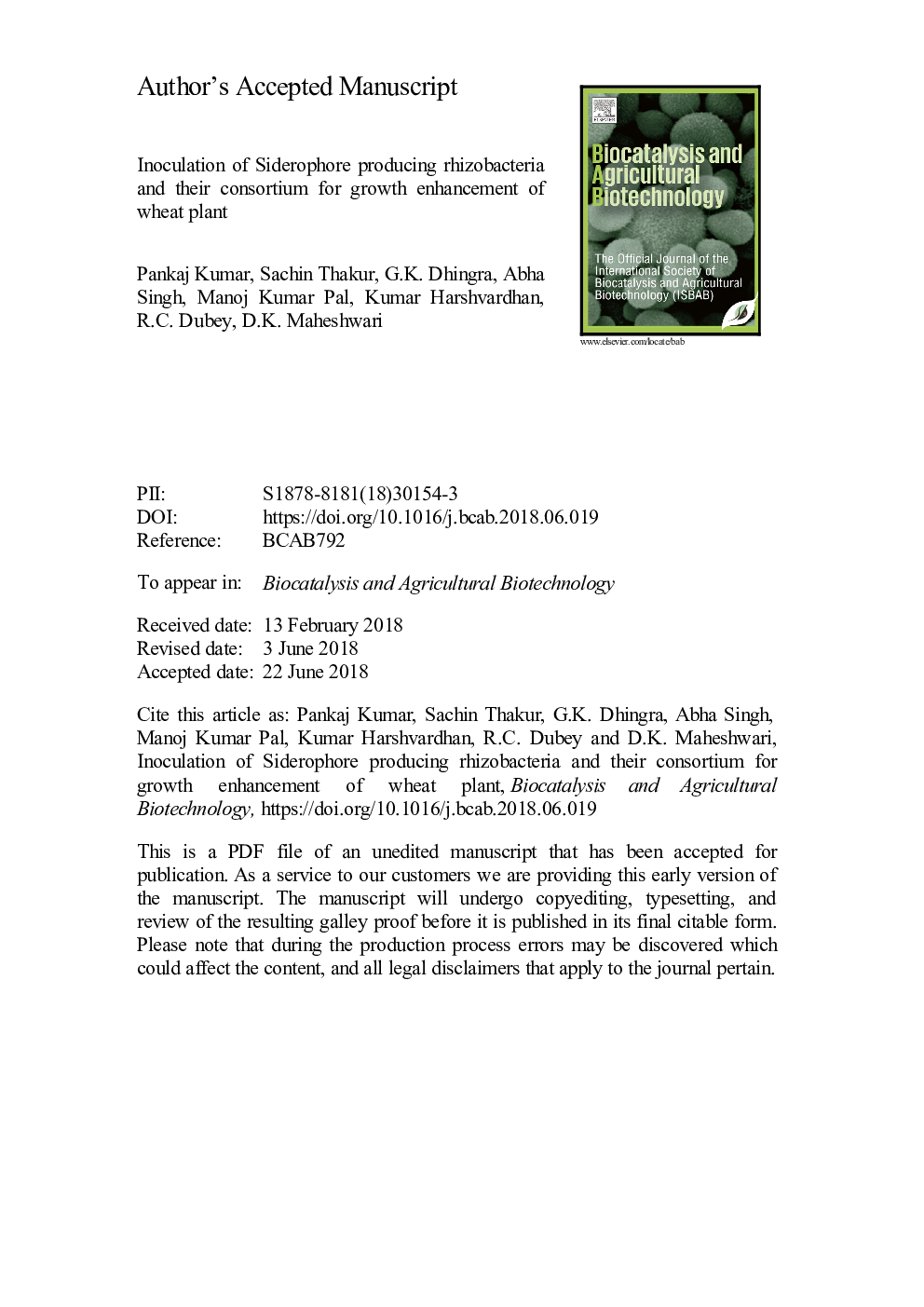| Article ID | Journal | Published Year | Pages | File Type |
|---|---|---|---|---|
| 8405647 | Biocatalysis and Agricultural Biotechnology | 2018 | 21 Pages |
Abstract
This experiment has been designed to assess the effects of consortium and individual strain on growth promotion, biocontrol and nutrient uptake by wheat growing in Punjab. Fifteen rhizobacteria were isolated from rhizospheric soil of farmer's field of Punjab. Based on their ability to produce siderophore and strongly inhibition of phytopathogen (Fusarium solani), three potential plant growth promoting rhizobacteria (Aneurinibacillus aneurinilyticus WBC1, Aeromonas sp. WBC4 and Pseudomonas sp. WBC10) have been identified on the basis of phenotypic and genotypic (16S rRNA gene sequencing) characters. These three rhizobacteria are best in siderophore production and antagonistic property against F. solani. Consortium (WBC1+ WBC4+ WBC10) of three rhizobacteria significantly increased germination, root and shoot length and fresh and dry weight of wheat plant compared to single inoculation of any rhizobacteria and uninoculated control. It has been suggested that this consortium could be used for production of an effective bioinoculant for eco-friendly and sustainable production of wheat and other crops of Punjab. Consequently, we suggest to the farmers of Punjab to use this type of bioinoculants by replacing detrimental chemical fertilizers and pesticides (one of the leading cause of cancer in Punjab) and could regain their natural agro-ecosystem environment and again can be breadbasket of India. Indirectly the state of Punjab can be free from stigma of cancer state of India.
Related Topics
Life Sciences
Agricultural and Biological Sciences
Agricultural and Biological Sciences (General)
Authors
Pankaj Kumar, Sachin Thakur, G.K. Dhingra, Abha Singh, Manoj Kumar Pal, Kumar Harshvardhan, R.C. Dubey, D.K. Maheshwari,
